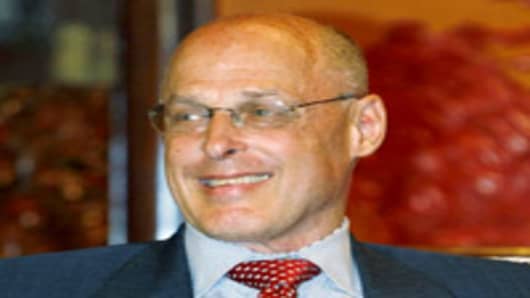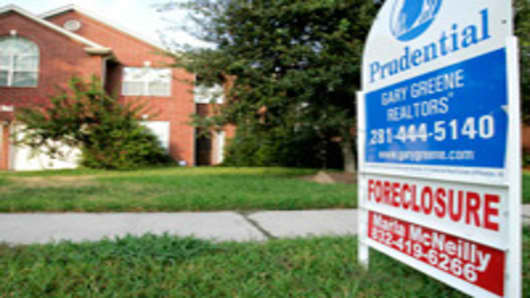Bush earlier said 1.2 million people could be eligible for help. But only a fraction will be subject to the rate freeze. Others would get assistance in refinancing with their lenders and moving into loans secured by the Federal Housing Administration, Bush said.
Also, the aid will only come to those who ask for it, he said. Thousands of borrowers who are falling behind on their payments have been sent letters about the options, and Bush also urged people to call a new hot line: 1-888-995-HOPE.
"Investors don't benefit from foreclosures," Paulson said in the CNBC interview. "What this plan does is let the private sector have the flexibility to do what the servicing agreement gives them, to adjust these mortgages, modify these mortgages, if its in the best interest of investors."
"All the investors I've talked to have been generally supportive," he continued. "But there's a lot of complexity."
The announcement followed the news earlier Thursday that home foreclosures surged to an all-time high in the July-September period. The Mortgage Bankers Association reported that the percentage of all mortgages that started the foreclosure process in the third quarter jumped to a record 0.78 percent, surpassing the previous record of 0.65 percent of all mortgages in the second quarter.
The president mentioned other steps to prevent foreclosures. The FHA has greater flexibility to offer refinancing to homeowners with good credit histories. It is expected that this eventually will help 300,000 families, officials said.



